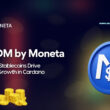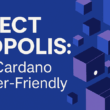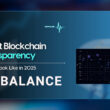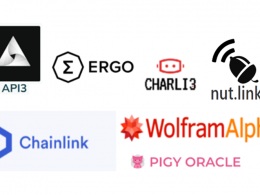In today’s data-driven world, the challenge of securely and efficiently storing and computing vast amounts of data has become increasingly critical. Currently, this landscape is dominated by a handful of centralized giants, resulting in an ecosystem with a set of inherent flaws.
From issues of privacy, monopolistic pricing, lack of transparency, to major service outages, the centralized model of data storage and computing stands on shaky ground. This paves the way for a revolutionary solution like Iagon to enter the scene and address these deep-seated challenges.
The monopolistic structure of the cloud services market has created an environment where four major players — Amazon Web Services (AWS), Google Cloud, Microsoft, and IBM — hold an oversized influence. This concentrated power hampers competition and inhibits the growth of newer entrants who often struggle against the vast resources and global reach of these incumbents.
Consequently, this oligopoly not only results in high pricing but also diminishes the incentive for these leading companies to innovate and improve their services.
Moreover, these centralized services often become single points of failure in the digital infrastructure. When outages occur, as we have seen with AWS in December 2021, they can cause widespread disruptions, affecting numerous other services that depend on them. The downtime not only affects consumer experience but can also lead to significant revenue losses for companies reliant on these services.
Centralization also opens the door to issues of security and privacy. Given the scale of these services, any security breach can expose a staggering amount of data, posing a grave threat to users and businesses alike. With all data being stored and managed in a single place, the risk of unauthorized access or misuse is invariably high.
Against this backdrop, perhaps the most troubling aspect of centralization is the lack of control that users have over their data. Companies like Google and Facebook have been known to leverage user data without explicit consent for targeted advertising, a major revenue stream for these platforms.
Furthermore, many of these tech companies have been hit with fines for mishandling consumer data, proving that user data privacy is often compromised in the existing system.
This is where Iagon steps in, an innovative startup that aims to rewrite the rules of the game. Founded in 2017, Iagon champions a vision for a decentralized marketplace for storage and computing resources. At the heart of Iagon’s vision is a resolute belief in data ownership — the idea that individuals and entities should have complete control over their data.
To fulfill this vision, Iagon’s protocol is designed to allow anyone with spare storage to trade their resources on the marketplace, maintaining rigorous standards of data privacy, security, and accessibility. It signifies a move away from dependence on a few centralized entities, instead distributing power and control among a network of users and providers.
The decentralization of storage and computing resources not only offers enhanced security but also ensures that users retain control over their data. The role of intermediaries is eliminated, providing users with the assurance that their data is not being exploited without their knowledge and consent.
This is a revolutionary shift from the status quo, addressing head-on the challenges of centralization and data ownership that have long plagued the industry.
The architecture
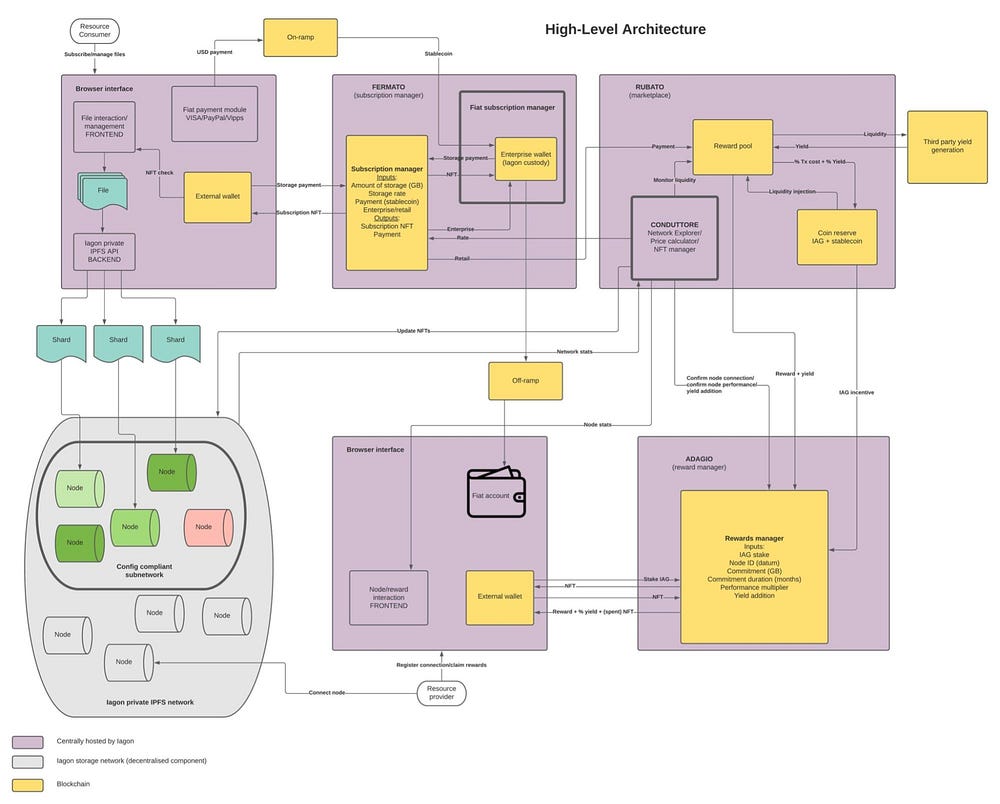
The architecture of Iagon’s system is detailed and multifaceted, comprising several key components: Adagio, Fermato, Rubato, Secure Lake Technology, Sharding, Common Operations, Cross-Chain Bridge, and Cloud Computing.
Adagio is a rewards model for retail storage providers. It connects the storage demand of consumers to the supply from providers, rewarding storage providers when they commit their resources. This incentivizes more providers to join the network, increasing the available storage capacity.
Fermato acts as the interface between the storage consumers and the smart contracts deployed on the Cardano blockchain. It allows storage consumers to subscribe to storage as a service and manage their existing subscriptions. This simplifies the process of purchasing storage and makes the system more user-friendly.
Rubato is a storage marketplace that calculates the trading rates of storage, maintains liquidity for reward payments and user incentives, and balances the supply and demand for storage. This ensures that storage prices remain competitive and fair, and that providers are adequately rewarded for their services.
Secure Lake Technology is designed to protect the data lake of an organization from various security, privacy, and financial risks. It is based on decentralization, encryption, random clipping masks, ECC encoding, compression, and sharding. This ensures that even when information systems are breached, the data and files cannot be accessed, deleted, or modified.
Sharding is a method for horizontally splitting and distributing files across multiple storage providers in a decentralized network. It provides data security and privacy, reduces the risk of data loss, and enables faster download speeds. This makes the system more resilient and efficient.
The Cross-Chain Bridge is a process of moving tokens between two different chains. In the future versions of the protocol, Iagon plans to use a cross-chain bridge to enable payments from other chains. This will increase the flexibility of the system and allow it to support a wider range of cryptocurrencies.
Finally, Cloud Computing is a future development where Iagon will build a marketplace for computing. The main goal is to provide cheaper, faster, decentralized, and more secure computing services. Underutilized data centers and home users with excess capacity will be able to sell their resources on the marketplace to earn rewards. Compute nodes will be grouped into tiers based on their performance, uptime, availability, and trustability.
Currently, the core file storage storage solution is Live and you can start uploading files after you have connected your wallet to the site. However, Iagon are going to take this a step further with their public storage platform Agora
The Agora protocol
The Agora Protocol is a key product of Iagon, designed to provide a public file management system that is integrated with the Cardano Blockchain. It’s a decentralized data storage solution that caters to both individuals and businesses. One of the unique features of Agora is that all uploaded content is visible to everyone and is curated by the community, promoting transparency and collaboration.
Agora offers several key features. It allows users to upload, store, and manage files in a hierarchical organization, providing a structured and intuitive file management system. It also incorporates community moderation, where users can report files as inappropriate. These reports are then reviewed and acted upon by a vetting committee and administrators, ensuring the platform maintains a high standard of content.
Each file in Agora has an attached discussion board for user comments, fostering a community dialogue around the content. To encourage user activity, Agora has a reward system that provides IAG tokens and Agora Reputation Score (ARS) points for actions like uploading content, moving files, and participating in content moderation.
The Agora Reputation Score (ARS) system is a reputation mechanism that tracks user behavior and rewards it accordingly. Users can increase or decrease their ARS score based on their actions. Users with high ARS scores can opt to join the vetting committee, where they can vote on actions such as the complete removal of a file or the return of a file from quarantine. Active participation in the committee earns users additional IAG tokens.
In terms of architecture, users need to connect their Cardano wallet to the platform to interact with Agora. For each uploaded file, the protocol records data such as the file’s status, upload timestamp, uploader ID, location, and discussion forum.
Looking ahead, Iagon plans to evolve Agora into a full-fledged NFT marketplace. Users will be able to buy or sell content while maintaining pseudo-anonymity, as only the public address of their wallets will be visible. Although KYC is not mandatory, users can choose to undergo KYC verification to boost their credibility and protect their reputation as sellers.
Why could this be a game-changer?
- Decentralization: The Agora Protocol’s decentralized nature fundamentally changes the way data is stored and managed. Traditional data storage solutions often rely on centralized servers, which can be vulnerable to attacks, outages, and data loss. By distributing data across multiple nodes in a blockchain network, the Agora Protocol mitigates these risks. This decentralization also democratizes data storage, allowing anyone to become a storage provider and earn rewards for their service. This could disrupt the traditional data storage industry, challenging the dominance of major cloud storage providers.
- Community Governance: The Agora Protocol empowers its users by giving them a say in content moderation. This is a departure from traditional data storage platforms, where content moderation decisions are often made unilaterally by the platform’s owners. By involving the community in these decisions, the Agora Protocol ensures that its policies and practices reflect the needs and values of its users. This could lead to a more inclusive and user-friendly platform.
- Incentivization: The Agora Protocol’s reward system incentivizes users to contribute to the platform, whether by uploading content, moving files, or participating in content moderation. This could drive user engagement and foster a sense of community on the platform. It could also encourage users to contribute high-quality content and act responsibly, knowing that their actions will be rewarded.
- Transparency: By making all uploaded content publicly visible, the Agora Protocol promotes transparency. Users can see what content is available on the platform, who uploaded it, and how it has been curated by the community. This transparency could enhance trust in the platform and deter misuse, as users know that their actions are visible to others.
- Potential for NFT Marketplace: The Agora Protocol’s planned evolution into an NFT marketplace could have far-reaching implications. For artists and creators, it could provide a new platform for monetizing their work, with the potential for greater profits than traditional sales channels. For buyers, it could offer a secure and transparent platform for purchasing digital assets, with the assurance that their purchases are recorded on the blockchain. This could stimulate the digital art market and potentially extend to other forms of digital content.
- Privacy and Security: The Agora Protocol’s integration with the Cardano Blockchain and optional KYC verification enhance the security and privacy of transactions on the platform. Users can transact with confidence, knowing that their data is protected by blockchain’s cryptographic security and that sellers have been verified. This could make the Agora Protocol an attractive option for users who value privacy and security.
- Efficient Resource Utilization: The Agora Protocol’s marketplace for computing resources promotes more efficient use of these resources. Underutilized data centers and home users with excess capacity can sell their resources on the marketplace, turning a potential waste into a source of income. This could lead to cost savings for these providers and for users who can access cheaper resources. It could also have environmental benefits, as more efficient use of computing resources reduces energy consumption.
Iagon is pioneering a transformative approach to data storage and computing with its decentralized cloud protocol. By leveraging the power of blockchain technology, Iagon is creating a secure, efficient, and user-centric platform that democratizes access to data storage and computing resources. Its innovative products, such as the Agora Protocol, are designed to foster community involvement, promote transparency, and incentivize positive contributions.
With its forward-thinking approach to resource utilization and its plans to evolve into an NFT marketplace, Iagon is not just responding to current trends in the digital world, but is actively shaping the future of the industry. As such, Iagon represents a compelling vision of a more decentralized, equitable, and user-driven digital ecosystem


